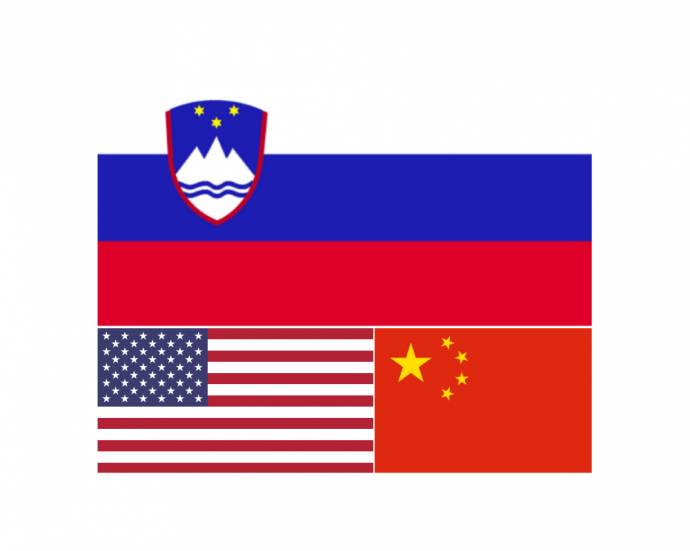The trade war between the US and China has the potential to expand, in particular because of the current US trade policies, which are trying to force trade partners to agree to the US terms using intimidation, said Črt Kostevc.
According to the associate professor at the Ljubljana Faculty of Economics, "battlefields" have also been opened with Canada, the EU, South Korea and Japan.
"There are no guarantees that US President Donald Trump will raise tariffs for some of these countries by the end of the year to open another round of tariff-slapping," he added.
Kostevc believes that the US-China trade war will certainly affect the EU economy, including Slovenia. "A global drop in trade could affect the German, French, Dutch and other economies, which are not concerned directly with the measures."
"Slovenia is strongly dependent on these and it can expect negative effects, particularly when the activity on its largest export markets cools down," he added.
Sašo Stanovnik, the chief economist of the asset management firm Alta Skupina, also pointed to Slovenia's dependence on exports. "Any measure resulting in a drop in global economic activity inevitably affects Europe, including Slovenia as a small, but open economy."
Stanovnik believes that the US-China trade war could quickly spread or calm down with a new agreement. "Investors on stock markets are nervous, but they are relatively convinced that an agreement will be found to the mutual satisfaction of the US and China."
According to him, the related uncertainty affects the economic activity, but the effects have so far been relatively small, and economists have so far not significantly downgraded their projections.
"On average, economists still assess that 2019 will also be an encouraging year, and there could be even more optimism if the trade wars calm down," said Stanovnik, who is more concerned about the long-term picture.
"The so-called trade wars and the election of Trump is more of a consequence of geo-strategic changes and changes in voter preferences and their polarisation. This could cause even more changes and uncertainty in the future," he said.
Bojan Ivanc of the Chamber of Commerce and Industry (GZS) meanwhile said that "the US fights a battle on our own behalf to a certain extent, because it is in our interest that intellectual property and technology rights are protected on all markets".
According to him, the key reason for the US pressuring China are the disputable practices in transferring US technology and intellectual property. Transfer of technology means transfer of a key competitive advantage, he said, adding that the US would also like to see China liberalise its financial market.
Mostly affected by the current moves could thus be large European multinationals which compensate for a part of demand from the US for Chinese products with production in China. "Direct effects on the Slovenian economy are relatively small."






